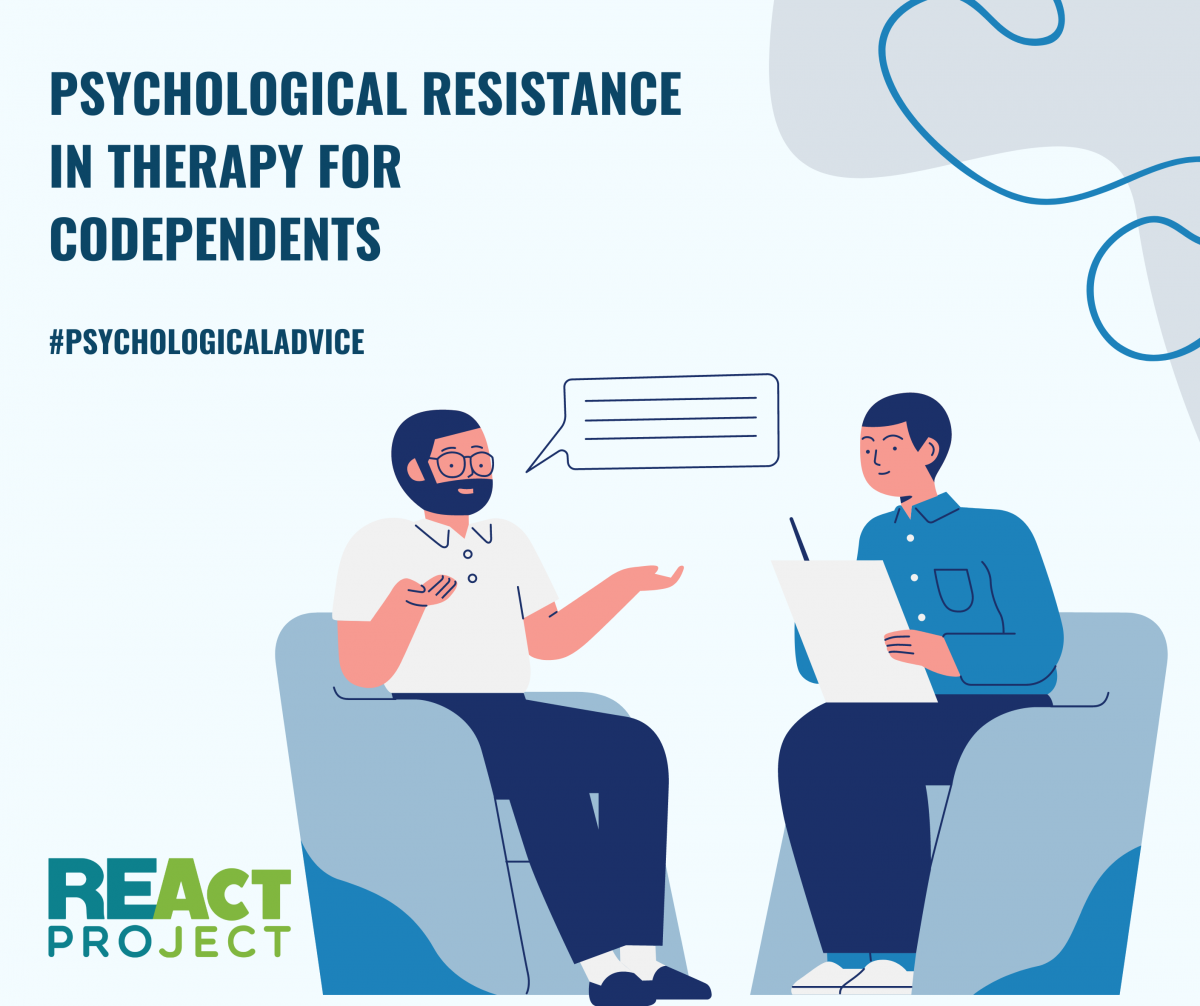Denial, resistance, and sabotage are frequently encountered in response to an attempted offer of help in these situations. The deeper the denial, the stronger the resistance. It can manifest itself in refusing to undergo treatment for addiction, or in the apparent sabotage that undermines the care being provided.
Psychotherapy for codependency is targeted at achieving behavior change and readiness to make the changes needed. It is human nature to seek stability. This is a safety issue. Any stability, for good or for bad, is better than something unknown. But any change intrinsically carries a risk. Therefore, change is considered a threat.
When we are in danger, we experience fear. Fear is a very unpleasant emotion that we try to avoid. If this experience cannot be avoided, then we seek to get rid of it. Our internal defense mechanisms can shield us from fear. The three primary defense mechanisms used unconsciously are the fight (anger), flight, or freeze responses. They all manifest themselves in different ways.
Thus, in psychotherapy for codependency, any change in a codependent person’s life is viewed by them as a risk, and perceived risk causes fear. Therefore, psychotherapy (“treatment”), in the opinion of a person who is codependent, is something to be afraid of.
Anger is manifested in overt resistance and sabotage in response to the offer of help as well as statements to the effect, “How can this help me?!” or “This won’t help me!” The client may shout and openly express their nervousness through words or non-verbally; they may give their personal reasons and examples that justify their current life situation. According to the client, the proposed course of action will in no way benefit them. For example, the idea of spending one hour a week attending a codependency self-help group may cause a storm of protest from a mother whose son has drug addiction issues. This is despite the fact that prior to psychotherapy this woman may have spent years and countless resources searching for a “cure” for her son.
Of course, not everyone who is codependent reacts so vehemently to the offer of effective help. But few agree to receive effective help the first time it is offered. Even after giving consent and attending a self-help group once, most codependents conclude that this strategy does not work. And they feel outraged and anger, thinking: “This psychotherapist might have offered something better for me instead!”. There are no valid arguments, even when supported by examples or evidence, that will convince a person who is in denial.
Many codependents demand that psychotherapist should turn their lives around overnight. It seems to clients that one or two sessions of therapy may result in radical life-changing outcomes and, most importantly, that their chemically dependent family member will get fully recovered after that. And if they do not see this happening, they conclude that psychotherapy does not work!
Self-deception or partial consent on the part of the codependent person is a noteworthy phenomenon to explore: “Okay, I will partially do as you’re suggesting, but on my own, without discussing anything with the therapist, after introducing some / major adjustments to the recommendations.” And this kind of reaction is understandable because change is scary. This is especially frightening when the addicted person demonstrates overt aggression toward the codependent. For example, some addicts openly resist, throw fits and make scenes, or even forbid their near and dear ones from attending self-help group meetings, calling them a “sect” or labeling their family members as “crazy.” Therefore, changes involved in the process of psychotherapy are objectively risky and may draw forth unpleasant reactions and responses from the addicted person. It is important to have the courage to take the plunge and follow through with them.
It is difficult and sometimes impossible to recover alone. Therefore, help for codependents should be underpinned by group support, the main tool here being mutual support.
The freeze response is just a reaction when a passive stance is assumed: “If I don’t do anything, nothing bad is going to happen.” But we know that this is not the case, because chemical dependence (and hence codependency) always progresses gradually over a period of time. So, unless some steps are taken about it, the situation will only get worse.
Thus, psychotherapy for codependents is directly related to risk. It is quite difficult to make the decision and go through with it, but it is a necessary step. In order to take risks, you need to be willing and prepared to deal with them. And keep this pattern in mind: the fewer problems there are, the less the codependent wants to change anything. But the more problems there are, the harder it will be to change something!


